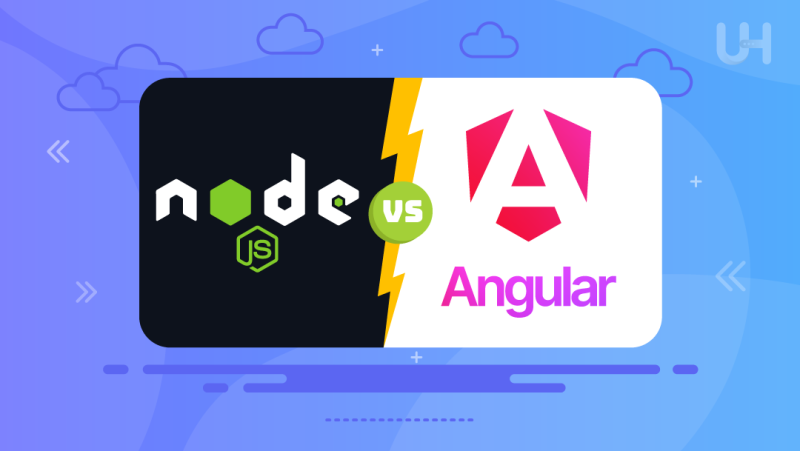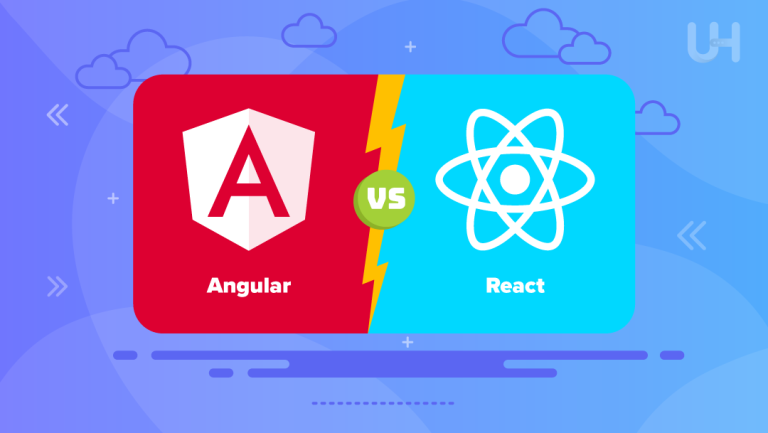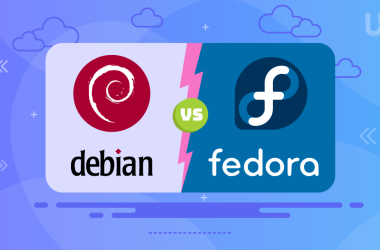When developing a web application, choosing the right technologies means the difference between good performance and scalability with efficient development processes. Two of the most popular technologies that always pop up in discussions are Node.js and Angular. While node.js vs angular serve different purposes in the web development space, they’re often compared because they complement each other.
In this article, we will focus on the main differences between Node.js vs Angular, exploring their respective applications and ultimately helping you understand which is best for the requirements of your project.
What is Node.js: An Overview
Node.js is a powerful runtime environment for JavaScript that enables the execution of the language outside the web browser. The year of release was 2009, and soon it gained momentum and turned out to be one of the most essential tools for developers’ use in building server-side JavaScript frameworks. Node.js enables full-stack developers to make applications using JavaScript on both the client and server sides. Thanks to its extensive ecosystem with millions of packages and libraries available, primarily through the Node Package Manager, developing applications has become notably flexible and extensible.
Key Features of Node.js
- Single-Threaded but Highly Scalable: Although Node.js operates on a single-threaded architecture, it is capable of managing numerous connections simultaneously without performance issues.
- Asynchronous and Event-Driven: Node.js is built on a non-blocking I/O model that is asynchronous and event-driven. This architecture allows it to efficiently handle a larger number of requests.
- RESTful API Development: Node.js is increasingly popular for creating RESTful Application Programming Interfaces. Frameworks like Express.js simplify the process of developing web applications.
- Vast npm Ecosystem: With over 1.3 million packages, npm is the largest software registry available. This extensive collection provides developers with a wide range of modules and tools to choose from.
- Cross-Platform Compatibility: Node.js works on all major operating systems, including Linux, Windows, and macOS. This makes it suitable for various environments, such as Mac VPS and Linux Server setups.
- Rich Tooling Support: There is a wealth of tooling available for testing, debugging, monitoring, and deployment, enhancing the development experience.
What is Angular: An Overview
Before we compare node.js vs angular js, it’s crucial to under angular itself. Angular is an open-source web application framework, which happens to be developed and maintained by Google. First released in 2010 under the name AngularJS, it was a complete rewrite of the framework that introduced Angular with the release of version 2 in 2016. Angular is written in TypeScript, which is a superset of JavaScript designed for scalable and high-performance applications. Such frameworks are known for their substantial architecture, thus being fitted for creating large and mighty applications at the enterprise level.
At its core, Angular is based on an architectural pattern called MVC-a pattern that really separates application logic from data management or presentation. This modularity makes applications built with this framework even more maintainable and scalable. Besides being highly dependent on the injection-of-dependencies system and powerful CLI tools, Angular makes the development of applications much easier.
Key Features of Angular.js
- Component-Based Architecture: Component-based architecture is used by Angular, which encourages the development of reusable and modular code, thus suitable for organizing and maintaining the application.
- Two-Way Data Binding: It keeps the model and the view in real-time synchronization, hence maintaining data integrity and ultimately increasing development speed.
- Dependency Injection: Angular’s dependency injection system works efficiently to manage various component dependencies, whereby it reduces redundant code but allows the application to be better scaled and tested with more efficiency.
- RxJS for Reactive Programming: Integrated with Angular, RxJS allows a developer to do asynchronous programming using observables. That helps developers handle complicated streams of data in a much more organized way and hence promotes reactive programming.
- Command Line Interface: Angular Command Line Interface makes the development workflow smooth and less hectic because it enables developers to create, scaffold, and maintain Angular applications with ease.
Node.js vs Angular: Table of Comparison
| Aspects | Node.js | Angular |
| Languages | Used C, C++, and JavaScript | Use JavaScript entirely |
| Application | Scalable server-side application | Client-side web application and Single-page |
| projects | Suitable for small-size projects | Highly interactive and active web projects |
| Usage | Highly useful for scalable applications when required | Useful for Real-time applications having instant actions |
| Installation | Complete Node JS installation needed in your system | Only require Angular JS file |
| Scope | Utilization for client-side as well as server-side application | Dominate client-side interaction |
| Framework | Possess different frameworks like Express.js. Sails.js and Partial.js | A web application framework in itself |
Boost Your Node.js Apps with Our Hosting Solutions!
Are you in search of a top-notch hosting solution for your Node.js applications? UltaHost provides quick, reliable, and scalable Node.js hosting designed specifically for developers. With our optimized hosting, you can elevate your backend infrastructure to new heights.
Node.js vs Angular Together
Node.js vs Angular, despite their inherent differences, can effectively complement one another in web development tools. Since, Node.js excels at managing backend operations and server logic, while Angular is designed to handle the frontend user interface. When used together, they form a comprehensive full-stack JavaScript development ecosystem, allowing for a seamless integration of server and client-side functionality.
Which One Should You Choose?

Reason to Choose Node.js
Choose Node.js if you’re building:
- Quick: The speed of Node.js is highly praised by businesses. It utilizes the V8 engine, developed by Google, to efficiently translate JavaScript into native machine code.
- Ubiquity: Thanks to Node.js, JavaScript now operates seamlessly in both the browser and the server. Code written in Node.js works similarly across both platforms, allowing companies to easily migrate logic from browser-based applications to server-side implementations.
- Data Streaming: While HTTP requests and responses are data streams, traditional web applications often treat them as discrete events. Node.js leverages this streaming capability to create impressive features, such as processing files during uploads, which helps reduce overall processing time.
- Database Queries: The queries for modern NoSQL databases like MongoDB and CouchDB are written in JavaScript. This means developers do not need to switch gears or remember different syntax when integrating Node.js with NoSQL databases.
- Real-time Web Applications: Node.js allows developers to create real-time web applications quickly. It’s faster than baking a cake or setting up a simple blog. It alleviates concerns about low-level sockets and protocols.
- Single Codebase Web Applications: Node.js allows developers to write JavaScript for both the server and client, making it easy to communicate and synchronize data automatically between the two.
- Proxy Server: Node.js can serve as a proxy server, managing different services with varying response times or collecting data from multiple sources.
- Increased Productivity: Since JavaScript is used in the development of all Node.js applications, the barriers between front-end and back-end developers have been completely removed, leading to enhanced productivity.
Reason to Choose Angular
Choose Angular if you’re building:
- Supported by Google: One of the key advantages of Angular is its support from Google. Google provides Long-Term Support (LTS) for Angular, indicating a commitment to the framework and plans for further development within the Angular ecosystem.
- TypeScript: Angular applications are built using TypeScript, a superset of JavaScript. This enhances security by supporting types, including primitives and interfaces.
- Declarative UI: Angular utilizes HTML to create an intuitive user interface for applications. Unlike JavaScript, HTML is a straightforward and user-friendly language. To maximize your Angular experience, consider leveraging scalable website server hosting for optimal performance.
- Plain Old JavaScript Objects: In Angular, you don’t need any additional getter and setter functions because all objects are Plain Old JavaScript Objects (POJOs). This allows for straightforward object manipulation using conventional JavaScript functionalities.
- PWA and SPA: Angular’s Progressive Web Application (PWA) feature provides a cost-effective solution that enables websites to function like mobile apps.
- Simplified MVC Pattern: The Angular framework incorporates the original Model-View-Controller (MVC) software architectural pattern.
- Modular Structure: Angular organizes code into distinct structures, whether they are components, directives, pipes, or services.
Advantages of Combining Node.js vs Angular
Using a single programming language, such as JavaScript or TypeScript, for both the frontend and backend of an application streamlines the development process. This unification allows developers to work more efficiently, as they can apply their knowledge of one language across the entire stack, reducing the learning curve and minimizing context switching between different programming languages.
As a result, development speed increases significantly, enabling faster prototyping and quicker iterations. Teams can collaborate more effectively, leveraging shared code and libraries to enhance productivity.
Additionally, this approach fosters improved scalability. A uniform language simplifies maintenance and scaling efforts. Developers can easily adapt both frontend and backend components in a cohesive manner. This consistent environment enhances the application’s ability to grow and accommodate increased user demand or additional features with ease.
Conclusion
Both Node.js and Angular are powerful tools for web development, each excelling in different areas. If you are building a real-time server-side application, Node.js is the ideal choice. On the other hand, if your focus is on creating dynamic, client-facing web applications, Angular is the preferred option. Combining Node.js vs Angular can offer the advantages of both technologies.
When it comes to building robust applications with Node.js or Angular, having a dependable and scalable hosting solution is essential for success. UltaHost’s reliable Virtual Private Server hosting offers high performance and security.
FAQ
Can I use Node.js and Angular together?
Yes, Node.js can handle backend tasks, while Angular manages frontend development.
Is Angular better for large-scale applications?
Yes, Angular is ideal for enterprise-level and large-scale applications.
Which is easier to learn when comparing Node.js vs Angular?
In the learning comparison, Node.js is generally easier to learn than Angular.
Can Node.js replace Angular?
No, they serve different purposes in web development.
What is the main difference between Node.js and Angular?
The main difference between both is that Node.js is a backend runtime, while Angular is a frontend framework.
Is Angular faster than Node.js?
Node.js and Angular each specialize in distinct aspects of web development. Node.js is particularly effective for backend tasks, while Angular focuses on frontend rendering.
Which is better for real-time applications?
Since, Node.js’s non-blocking, event-driven architecture makes it very useful for creating real-time applications.










